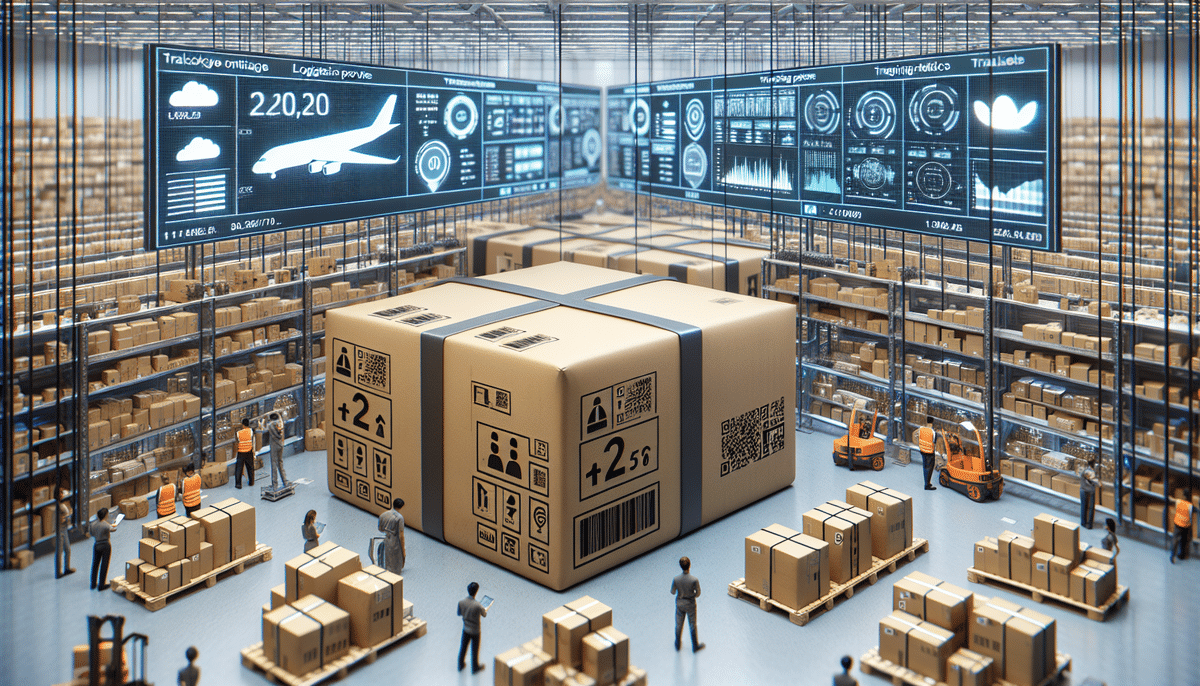ShipBob vs Fulfillment by Amazon (FBA): Comprehensive SEO Comparison
Choosing the right ecommerce fulfillment partner is crucial for your business's success. Two leading options in the market are ShipBob and Fulfillment by Amazon (FBA). This comparison delves into their services, pricing, shipping options, customer support, and more to help you determine which platform aligns best with your business needs.
Understanding ShipBob and Fulfillment by Amazon (FBA)
What is ShipBob?
ShipBob is a third-party logistics (3PL) provider offering comprehensive order fulfillment solutions. With a network of fulfillment centers across the United States and internationally, ShipBob enables ecommerce businesses to store inventory close to their customer base, ensuring faster and more affordable shipping. ShipBob integrates seamlessly with popular ecommerce platforms like Shopify and WooCommerce, automating the entire fulfillment process.
ShipBob provides real-time tracking, inventory management, and analytics tools that help businesses optimize their supply chains. Their 24/7 customer support ensures that any fulfillment issues are promptly addressed, making ShipBob a reliable partner for growing ecommerce businesses.
What is Fulfillment by Amazon (FBA)?
Fulfillment by Amazon (FBA) is Amazon's logistics service that allows businesses to store their products in Amazon's fulfillment centers. Amazon then manages the storage, packaging, shipping, and customer service for these products. FBA seamlessly integrates with ecommerce platforms like Shopify and WooCommerce, simplifying inventory and order management for businesses.
One of FBA's significant advantages is access to Amazon's extensive distribution network and Prime membership benefits, which can enhance product visibility and sales. Additionally, FBA offers multi-channel fulfillment, enabling businesses to fulfill orders from various sales channels through Amazon's infrastructure.
Key Comparison Factors
Pricing Structures
ShipBob's pricing is based on factors like package size, weight, order volume, and storage space. They offer transparent pricing with additional fees for services such as custom packaging and special handling. ShipBob also provides discounted rates for high-volume shipments and allows merchants to negotiate shipping rates independently.
In contrast, FBA charges fees for storage, fulfillment, shipping, and premium services like Amazon Prime. Their pricing varies based on product dimensions, weight, storage duration, and fulfillment requirements. While FBA offers competitive rates for Prime members, the overall cost can be higher for businesses with low to moderate order volumes.
Shipping Options and Global Reach
ShipBob offers a variety of shipping options including ground, 2-day, and overnight shipping through partnerships with carriers like USPS, UPS, and FedEx. They provide international shipping to over 220 countries and territories, ensuring broad global reach with competitive rates.
FBA excels in international shipping with a vast global network, serving over 100 countries. While FBA offers same-day and next-day delivery for Prime members, their rates may be higher compared to ShipBob, especially for non-Prime shipments.
Customer Support and Management Tools
ShipBob provides comprehensive customer support through phone, email, and dedicated account managers. Their user-friendly dashboard offers real-time order and inventory tracking, along with detailed analytics to inform business decisions.
FBA also offers customer support via phone and email, along with an extensive online support center. However, navigating Amazon's strict policies can sometimes complicate issue resolution. Their dashboard provides robust tools for managing orders and inventory but may have a steeper learning curve for new users.
Integrations and Compatibility
ShipBob integrates with major ecommerce platforms like Shopify, WooCommerce, BigCommerce, and Magento. Additionally, it connects with marketplaces such as Amazon and eBay, and supports various shipping carriers, enhancing operational flexibility.
FBA primarily integrates with Amazon's ecommerce platform but also supports connections with platforms like Shopify and WooCommerce. It offers multi-channel fulfillment, allowing businesses to use Amazon's infrastructure to fulfill orders from different sales channels.
Pros and Cons
Pros of ShipBob
- Flexible and transparent pricing
- Wide range of shipping options with multiple carriers
- Custom packaging and branding capabilities
- Extensive international shipping coverage
- User-friendly dashboard with real-time analytics
Cons of ShipBob
- Additional fees for certain premium services
- Limited integrations compared to larger platforms
- May not be cost-effective for very high order volumes
Pros of Fulfillment by Amazon (FBA)
- Access to Amazon's vast customer base and Prime members
- Efficient and scalable fulfillment network
- Simplified returns management
- Competitive shipping rates for Prime-eligible products
- Multi-channel fulfillment capabilities
Cons of Fulfillment by Amazon (FBA)
- Higher fees and stringent policies
- Complex user interface for beginners
- Limited branding and customization options
- Dependency on Amazon's ecosystem
Suitability for Different Business Sizes
ShipBob is particularly well-suited for small to medium-sized businesses seeking affordable and flexible fulfillment solutions. Its low minimum order requirements and customizable services make it ideal for businesses looking to scale without significant upfront costs.
FBA is best suited for businesses that leverage Amazon's extensive sales channels and customer base. While it offers robust infrastructure and global reach, the higher fees and strict policies may be challenging for smaller businesses or those operating across multiple marketplaces.
Conclusion: Which Fulfillment Service is Right for You?
Both ShipBob and Fulfillment by Amazon (FBA) offer robust order fulfillment solutions tailored to different business needs. ShipBob provides flexibility, competitive pricing, and extensive shipping options, making it an excellent choice for businesses seeking control over their fulfillment processes. On the other hand, FBA leverages Amazon's vast infrastructure and customer base, offering unparalleled reach and efficiency for businesses focused on scaling through Amazon's platform.
Consider factors such as your order volume, target markets, integration requirements, and budget when choosing between ShipBob and FBA. By aligning your business goals with the strengths of each platform, you can optimize your fulfillment strategy to enhance customer satisfaction and drive growth.
Additional Resources
- Shopify's Guide to Fulfillment Services
- Oberlo's Comprehensive FBA Guide
- Statista Reports on Fulfillment Centers




















